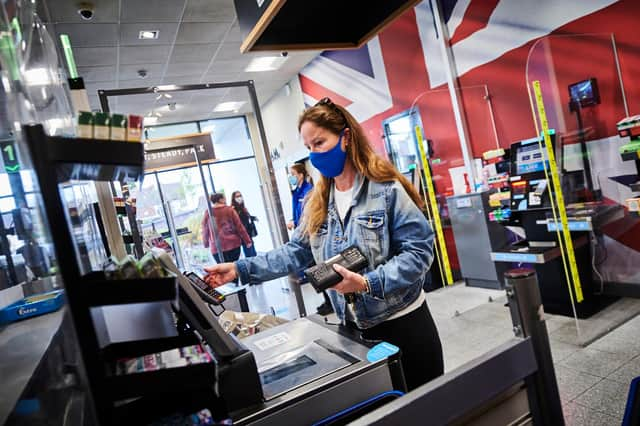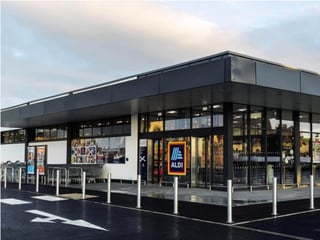Discount supermarkets cash in during pandemic


Discount supermarkets Aldi and Lidl have seen sales grow by 11 per cent this year, as shoppers looked for affordable, simple ways to shop during the pandemic - while food discount sales are set to top £31 billion in the next five years, an increase of almost 30 per cent, according to new figures from researchers at Mintel.
Analysts said that the brands’ simple, quick shopping formats appealed to shoppers during the pandemic.
Advertisement
Hide AdAdvertisement
Hide AdAldi and Lidl account for around 67 per cent of the discount market - including food and non-food - and 13 per cent of the total UK grocery market.
The report found that just under nine in 10 people shop at a food discounter, rising to 90 per cent of 16-24 year olds. Only 28 per cent of discount shoppers agree that prices are more important than quality. Meanwhile, just over a fifth agree that having more money would make them less likely to shop at discounters.
However, the discount brands have continued to see growth despite not having an online ordering and delivery service. Aldi allows customers to order food online and pick it up in a click and collect service and delivers food via Deliveroo at eight stores in Scotland, however Lidl earlier this year abandoned plans to launch online shopping and delivery when it shut own its digital logistics arm, saying it would instead focus "on our bricks-and-mortar business".
In October 2020, nearly a quarter of consumers in the UK said that they were shopping locally more often since the COVID-19 outbreak. The convenience of food discounters is supported by over half of consumers who also said that they like the smaller range available at discounters because it allows them to shop more quickly.
Piers Butel, retail analyst at Mintel, said: “Food discounters have managed to successfully carve out a unique niche in the market and are well positioned to benefit from the economic uncertainty caused by the COVID-19 pandemic. The food discounters have been immensely successful at communicating their value proposition to consumers over the last decade. The combination of low prices, good value, and a simple shopping experience has proven very popular with customers.
“Their famous brand-beating luxury items may garner the headlines and attract new shoppers, but it’s the streamlined range, simple shopping experience, and good value that keep those customers loyal. In recent years we have seen the food discounters increasingly blur the line between discounter, convenience store, and supermarket. This drift into a more mainstream convenience position with, for example, the launch of smaller format Aldi Locals, may prove to be a positive move in the current climate. With many consumers in the UK working from home, shopping locally more often and keen to reduce time spent in stores, discount stores located in or near residential areas may benefit from increased custom.”
An Aldi spokesperson said: “This year has been difficult for many families but our customers know that our promise to them is simple: they will always pay the lowest prices on every product we sell."
A message from the Editor:Thank you for reading this article. We're more reliant on your support than ever as the shift in consumer habits brought about by Coronavirus impacts our advertisers.
If you haven't already, please consider supporting our trusted, fact-checked journalism by taking out a digital subscription.
Comments
Want to join the conversation? Please or to comment on this article.
